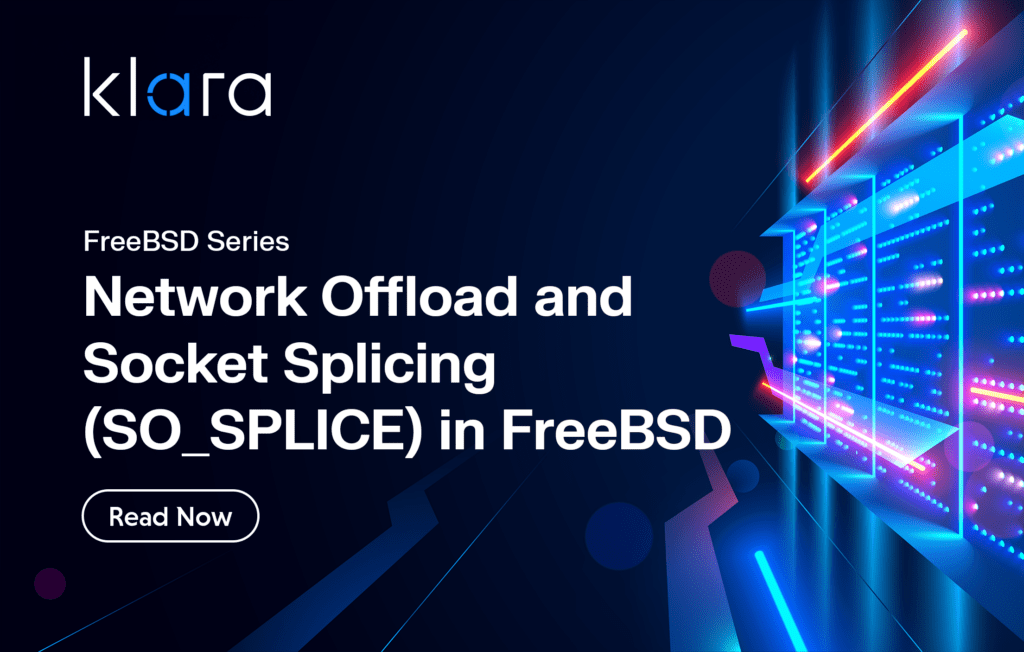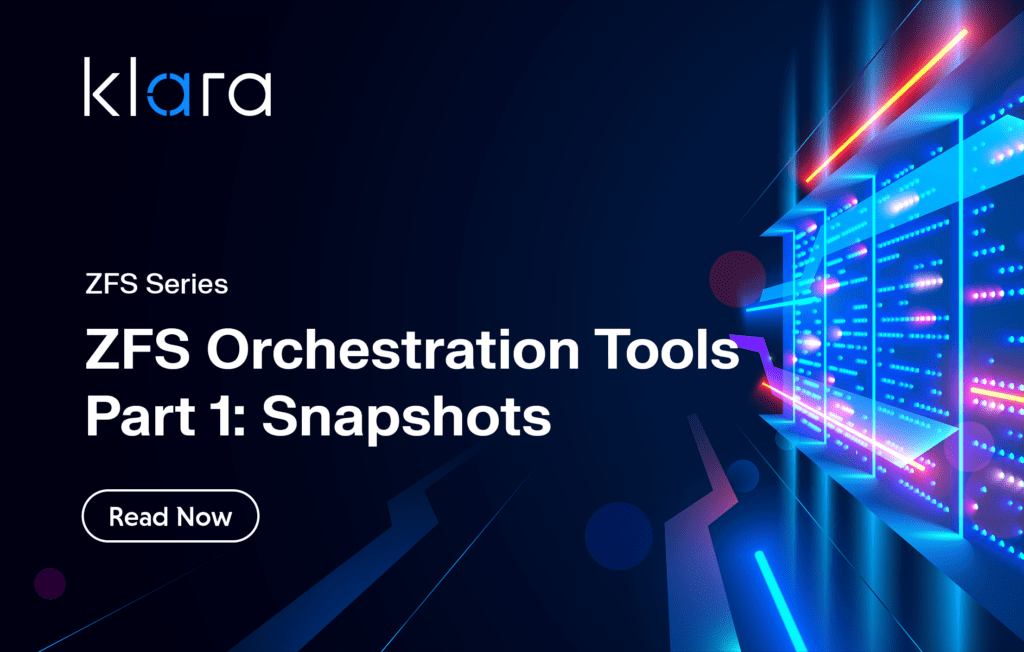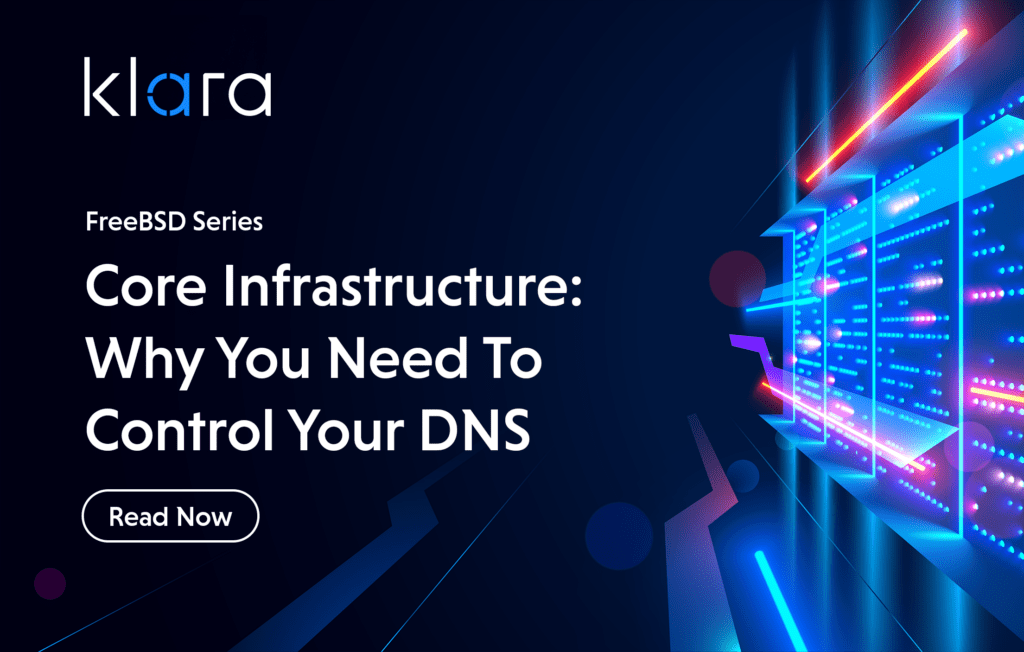What We’ve Learned Supporting FreeBSD in Production (So You Don’t Have To)

Running FreeBSD in production is powerful—but demanding. Drawing on nearly a decade of experience, Klara Inc. outlines the most common operational challenges teams face with FreeBSD and how to avoid them through disciplined engineering practices, monitoring, and strategic upgrades.
Network Offload and Socket Splicing (SO_SPLICE) in FreeBSD

FreeBSD’s SO_SPLICE enables kernel-level TCP proxying, reducing CPU overhead and eliminating unnecessary data copies. This improves network efficiency, lowers latency, and enhances throughput. Now available in FreeBSD 14.2, it offers a streamlined solution for high-performance proxying.
Why ZFS Reports Less Available Space: Space Accounting Explained

ZFS space accounting can be tricky, often showing less available storage than expected. This guide breaks down how ZFS tracks space, the impact of snapshots, and how features like compression and deduplication affect storage usage.
ZFS Orchestration Tools – Part 1: Snapshots

ZFS snapshots are powerful, but manual management isn’t efficient. This article breaks down automation tools that simplify scheduling, retention, and cleanup. We take a close look at pyznap, sanoid, znapzend, and more, comparing their features and configurations to help you choose the right fit.
Controlling Your Core Infrastructure: DNS

Take charge of your network’s performance and privacy by setting up your own DNS server. Learn how DNS queries work, why ISP-provided servers may hold you back, and how a well-configured caching DNS server can drastically improve speed and control across your infrastructure.
Key Considerations for Benchmarking Network Storage Performance

When measuring network storage performance, it’s essential to account for factors like protocols, workloads, and testing tools. SMB, NFS, and iSCSI each bring unique strengths and challenges to the table. Learn how to optimize your NAS setup for accurate and meaningful benchmarking results.
Managing and Tracking Storage Performance – OpenZFS Storage Bottlenecks

When a storage system is busy, one of the most frequent questions is: which of the many workloads on the system is driving that utilization. This week we look at some tools that make it easier to track down which workloads are using up all of the IOPS or bandwidth on a storage system.
Winter 2024 Roundup: Storage and Network Diagnostics

Check out this season’s investigation-themed collection of top diagnostics stories. From uncovering ZFS bugs to solving FreeBSD network challenges, see how our expertise addresses the toughest technical issues.
FreeBSD 14 replaces Sendmail with DMA

FreeBSD 14 introduces DMA, the lightweight Mail Transport Agent from DragonFly BSD, as the default replacement for Sendmail. This article outlines the reasons behind the change, highlights the benefits of DMA, and provides a step-by-step guide to configuring it for efficient email handling on minimal systems.
ZFS Storage Fault Management on Linux

Hardware failures are unavoidable, but ZFS fault management ensures your data stays secure. From detecting disk issues to automated recovery and performance optimization, discover how ZFS keeps your storage resilient and ready for the unexpected.





